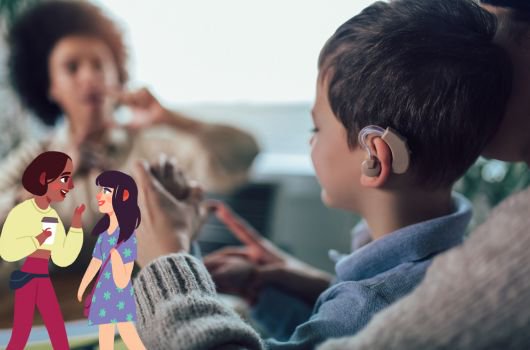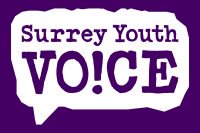
Ableism, Stigma and Discrimination: The Power of Language
Lived experiences, testimonies, and preferred terminology from young people with additional needs and disabilities living and accessing services in Surrey, UK.
Written by an ATLAS member who wished to remain anonymous.
What is Stigma and Discrimination?
Definitions
Stigma is defined as a mark of disgrace associated with a particular circumstance, quality, or person.
Discrimination is defined as the unjust or prejudicial treatment of different categories of people, especially on the grounds of race, age, sex, or disability.
The impact of stigma and discrimination
These two words describe the root of the reason minority groups struggle so much. To be perfectly honest, there is no way of talking about this that won't upset someone: so, I'm just going to be me.
Stigma to me is not stimming because it makes someone else uncomfortable, it's desensitising myself to sound, so I don't need ear defenders, it's acting a certain way to fit someone else's idea of what Autism is.
Stigma is not using my wheelchair when I desperately need it and staying in it when I don't need to, so I don't have to deal with the "it's a miracle" comments. Stigma is suppressing loud vocal tics because 'what if they think I'm faking or possessed'.
Discrimination is being spoken down to when I mention my disabilities, it's being told I'm too 'high functioning' to be autistic, actually being told I'm just not autistic.
Discrimination is not being able to go to Pride because they didn't take into account that disabled people can be LGBTQ+ too, it's going to visit my university friends and having to get out of my chair to drag it up and down stairs when I'm close to fainting, it's not being invited because the assumption is that I'll be too ill.
What is ableist language?
Ableist language are words or phrases that, whether knowingly or not, harm the disabled community. This can be seen through slurs, ignorant comments, and tasteless jokes.
It's loads of little things.
ATLAS member
This report is here to help show what disabled people really don't want to hear and to shine a light on the fact that even professionals are still using ableist language.
I've shared some examples of ableist language above (see "high-functioning") but I'll dig a little deeper here. When I was 10, I was diagnosed with Autism (actually Asperger's but it's not a diagnosis anymore.) and one of the first things I was told, by one of my teachers, was: "This isn't an excuse".
This stuck with me and practically moulded what I made my life. It was the start to my deliberate masking. From then on, I made such an effort to be 'normal' that I now barely know how to 'take off my mask'.
Masking is a term used within the neurodivergent community to describe what we do to appear neurotypical. Masking can be voluntary or involuntary and after a while is hard to stop doing. Often when someone is diagnosed, they'll 'take off their mask' and appear 'more neurodivergent'.
Masking is a trauma response and trauma screws with everything. Trauma affects people with autism a lot more. Don't know where the mask ends and where I begin.
ATLAS member
How does ableism impact people's daily lives?
I think what often isn't realised is that ableist language has very long-term effects. I still question whether I'm disabled enough on a regular basis because of off-handed comments about how really, I should be able to manage school/college, or how 'I've been through that and I'm fine so why aren't you?'
This also touches on internalised ableism, which is where a disabled person projects the negative views of society/culture onto themselves. For example, feeling like a burden, that you are imagining an illness, that you can't be attractive because you are disabled or having low expectations for yourself.
People act surprised when they hear I am in relationships or friendships.
ATLAS member
Ableist language is something I come across on almost a daily basis. It's so hardwired into our society that most people don't tend to notice it.
I had a classmate in college constantly use the R slur for ridiculous things like paint being stuck in the tube. Even when I spoke up all that happened was a brief conversation on why the R slur isn't even offensive (spoiler alert – it is!) in which I was entirely drowned out.
It's moments like these that make me realise how little education there is about ableism.
One of the ways that I often experience ableism is on the systemic level, so although I don't find that people are overly rude, they'll just not think of the fact that I am disabled.
ATLAS member
I also have Tourette's Syndrome and the most common thing I hear is: "I actually think it's so funny".
As I'm writing this, I have four large scratches over my face from both tic attacks and just general ticcing. I regularly insult my family which can be funny sometimes, but Tourette's has no boundaries and I end up crossing lines constantly.
I hit my friends often, I literally can't keep a secret, so people have left me out of them, and I have a constant awareness that I am entirely out of control.
Doesn't really seem that funny now. But to avoid lengthy conversations that just end up upsetting me, I have to smile and nod along. In a perfect world, people would be educated on disability and ableism, so conversations like these would be less common.

